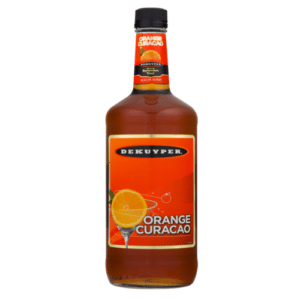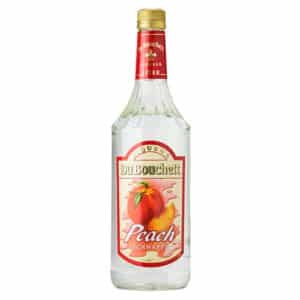Red wine vinegar comes from oxidized wine. It adds a pink hue to your dishes.
Most kinds of vinegar follow a two-step fermentation process. In the first step, the grapes are crushed until a liquid is produced, then bacteria and yeast are added to the juice to begin the fermentation process. This converts sugars from the juice into alcohol. The second step converts the alcohol into vinegar.
Keep reading to learn more about red wine vinegar and five great red wine vinegar substitutes.
Related Article: Tarragon Vinegar Substitutes
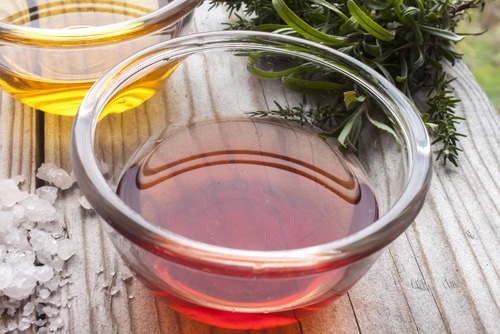
Characteristics of Red Wine Vinegar
Red wine vinegar is fat-free and a low-calorie option to enhance your dish. Red wine vinegar can differ in its color and hue. From a dark red to a subtle pink color, the color of red wine vinegar is determined from the color and age of the grape.
Red wine vinegar is commonly used in weight loss due to the low-calorie intake. The longer your age red wine vinegar, the better it tastes. It contains zero carbohydrates.
Top Five Red Wine Vinegar Substitutes
The best red wine vinegar substitutes are Apple cider vinegar, Sherry vinegar and White vinegar. Balsamic and Champagne are also good grenadine alternatives.
1. Apple Cider Vinegar
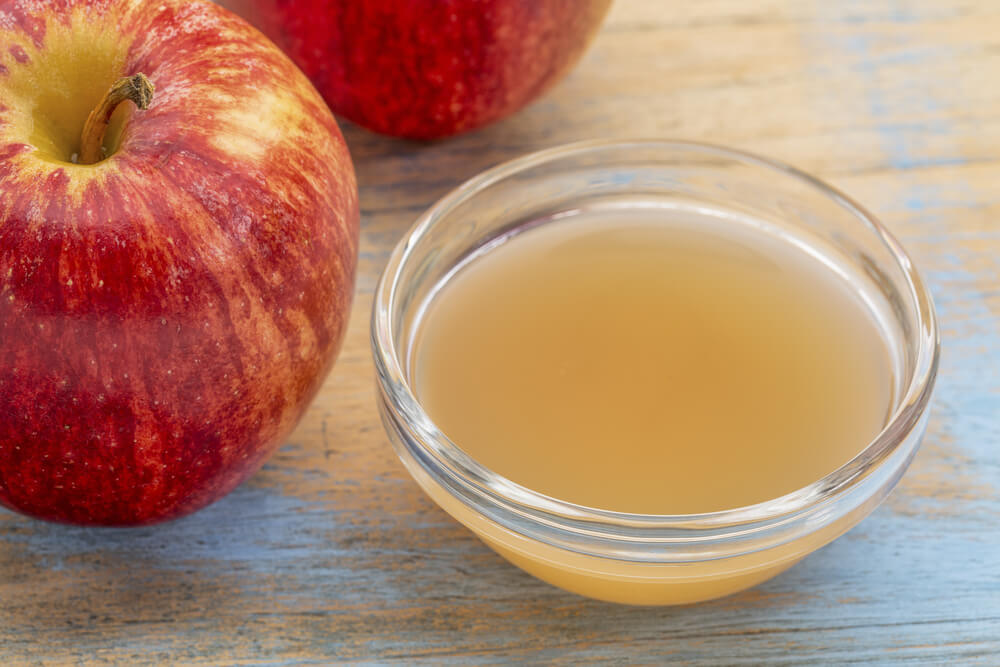
Apple cider vinegar is made from fermented apples. The apples are crushed, and the juice is squeezed out. Bacteria and yeast are added to the juice to start the fermentation process. This process converts the sugar to alcohol. In the second step, the alcohol is converted into vinegar by using acidic bacteria.
Characteristics of Apple Cider Vinegar
Apple cider vinegar has a sour taste. This low-calorie, non-fat additive offers a zesty flavor to your dish. It is clear-like in color with a brownish-gold color.
Benefits to Using Apple Cider Vinegar
Apple cider vinegar is commonly used to lose weight and improve heart health.
Different Uses
You can use apple cider vinegar in meals, but also in many other ways. Dab apple cider vinegar onto a bug bite to take away the itch. Use apple cider vinegar to aid in digestion after a starchy meal. Spritz apple cider vinegar onto your hair between washes to keep your hair fresh. When diluted with water, Apple cider vinegar can also be used as a cleaning agent in your home.
How Do You Substitute
Use the equal parts of apple cider vinegar as you would red wine vinegar. The liquid can be measured and added to your dish, the same way the recipe would call for red wine vinegar.
2. Sherry Vinegar
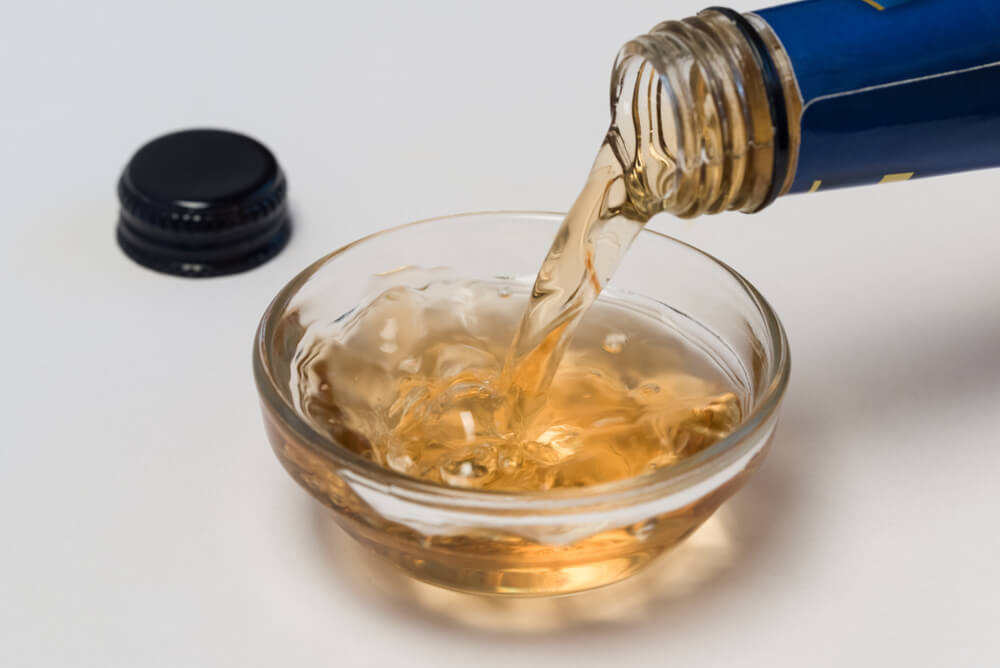
Sherry vinegar is known as a gourmet variation of wine vinegar made from Sherry. It was created in Spain, Italy, and France. It is aged in an oak barrel for a minimum of six months before it reaches seven degrees of acidity. Most sherry is created from wine made of Palomino grapes.
Characteristics of Sherry Vinegar
Sherry vinegar is known for its sweeter flavor. It has a sweet raisin note. Sherry vinegar has a deep, rich flavor that enhances soups, stews, and casseroles. Sherry vinegar can raise the good type of cholesterol, HDL, help with weight loss, and lower blood sugar. It is closer to the flavor of balsamic vinegar.
Benefits of Using Sherry Vinegar
Sherry vinegar offers the same acidity as other vinegar, but the flavor is richer.
Different Uses
Sherry vinegar can be used in dishes that require a bit more richness, such as soups and stews. It is used primarily for cooking rather than as a household cleaner.
How Do You Substitute
Slightly decrease the amount of sherry vinegar when substituting it for red wine vinegar. Substitute half a cup of red wine vinegar for a quarter of a cup of sherry vinegar in most recipes.
3. White Vinegar
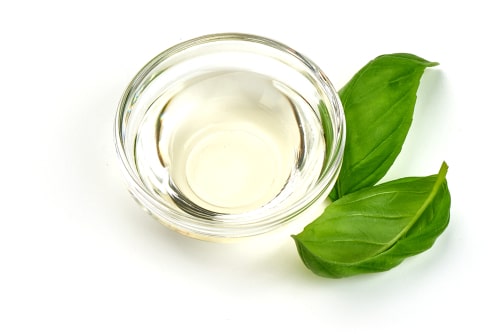
White vinegar is made by fermenting different fruits and grains into alcohol and then adding bacteria to produce vinegar.
Characteristics of White Vinegar
White vinegar contains flavonoids, phenolic acid, and aldehyde. It has a sour taste. White vinegar is commonly used in sauces, soups, and marinades. It has a long shelf life. You do not need to refrigerate white vinegar.
Benefits of Using White Vinegar
White vinegar shares the benefits of weight loss as it is low-calorie and fat-free. It is high in acidity and aids in food digestion. It may also help to disinfect when used as a cleaner.
Different Uses
Due to its mild acidity, white vinegar is used in cooking and industrial and domestic uses, including being used as a cleaning agent.
How Do You Substitute
Use the equal parts of white vinegar as you would red wine vinegar. The liquid can be added to your dish the same way the recipe would when using red wine vinegar.
4. Balsamic Vinegar
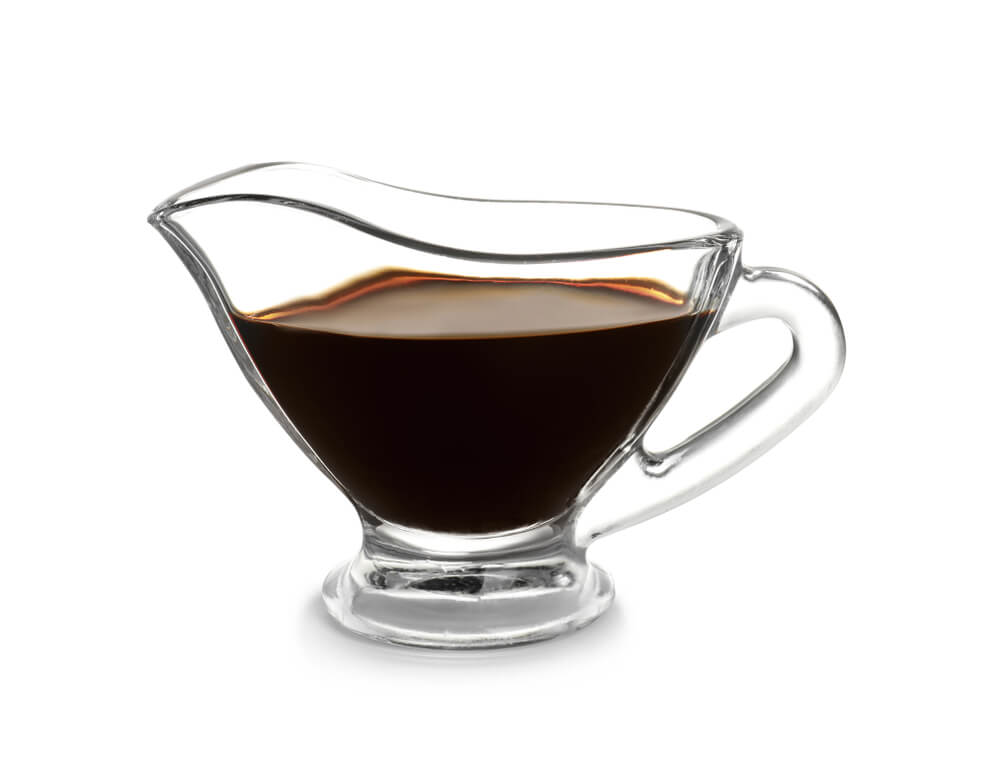
Balsamic vinegar is made from the concentrated juice of white grapes. Beginning with strong vinegar, balsamic vinegar is made by mixing it in slightly sweetened caramel and sugar.
Characteristics of Balsamic Vinegar
The dark brown color adds uniqueness to your dishes. The rich, sweet and complex flavor is different from similar kinds of vinegar. Balsamic vinegar contains no balsam. Balsamic vinegar is 77% water with 17% carbohydrates, no protein or fat.
Benefits of Using Balsamic Vinegar
Balsamic vinegar is low-calorie and low-fat. Digestion is sped up with balsamic vinegar.
Different Uses
Balsamic vinegar can be added to recipes, in sauces, and when sauteing vegetables. You may want to consider putting balsamic vinegar in cocktails and drinks or drizzled over your favorite dish to give it visual appeal.
How Do You Substitute
Use slightly less balsamic vinegar as a substitute for red wine vinegar. You may also want to decrease sweeteners when adding balsamic vinegar to your recipe.
5. Champagne Vinegar
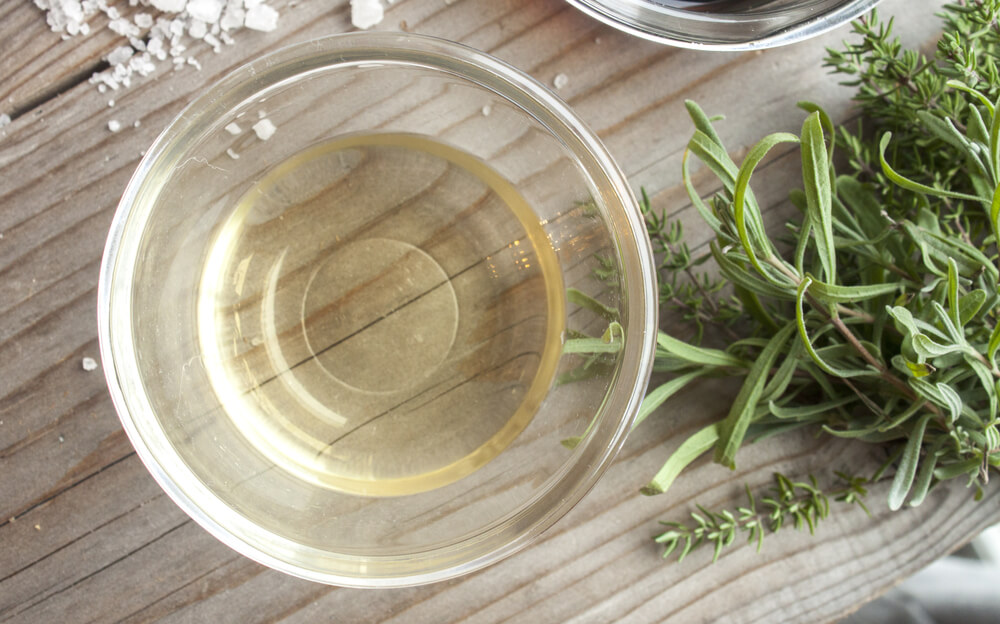
Champagne vinegar is processed the same way other vinegar is, but using champagne. It can be stored for up to 6 months. Champagne is produced using chardonnay or pinot noir grapes.
Characteristics of Champagne Vinegar
It is favorable and adds a zesty flavor to your salads, dressings, and sauces. There is a slight hint of vanilla to champagne vinegar. It is flavoured on vinaigrettes. This type of vinegar is the most expensive on the market.
Benefits of Using Champagne Vinegar
Anyone who is trying to control diabetes may want to choose champagne vinegar.
Different Uses
You may want to add white vinegar to champagne vinegar to add more acidity. Due to its expense, it is not commonly used as a household cleaner but is instead used primarily for cooking.
How Do You Substitute
Use the equal parts of champagne cider vinegar as you would red wine vinegar. The liquid consistency can be measured and added to your dish, the same way the recipe would call for red wine vinegar.
Frequently Asked Questions
Red wine vinegar has many health benefits. It contains small amounts of iron, magnesium, phosphorus, potassium, and vitamin C. Red wine vinegar also contains probiotics and acetic acid. Both of these offer anti glycemic effects, which assist in digestion and help control a spike in blood sugar.
Red wine vinegar provides acidity to marinades and pickles. If you are looking for an earthy and savory flavor for your vegetables, try sauteing mushrooms and onions in red wine vinegar.
If you require vinegar that won’t color your dish, you may want to choose a substitute. You may not have red wine vinegar on hand, or you may be looking for a different flavor for your dish.
Vinegar substitutes offer the same acidity without compromising on taste. If you are looking for health-conscious garnishes and condiments, red wine vinegar can provide that for you, and so can other kinds of vinegar.
You may be needing a red wine vinegar replacement for a variety of reasons. You may be in the middle of a recipe, and you don’t have red wine vinegar on hand. You may be looking for a bit of a different flavor or color for your meal. Whatever the reason is, there are a variety of substitutes that offer closeness to red wine vinegar.
Red wine vinegar is made from red wine, while white wine vinegar is made from white wine. Red wine vinegar has a more subtle flavor, while white wine is much stronger. The most obvious difference is the color.
Red wine vinegar is used best with beef, pork, and dark vegetables. White wine vinegar is used best with chicken, fish, and lighter-colored vegetables. Both red wine vinegar and white wine vinegar come from oxidized wine.
Risks to Using Too Much Vinegar
Using too much vinegar can damage your teeth due to the high acidity. There is a potential for too much vinegar to lower potassium levels. Too much vinegar can slow down your digestion, which makes it difficult to control blood sugar.
Conclusion
Whether you are looking to add a different flavor or hue to your dish, there are many red wine vinegar substitutes available. These top five substitutes offer similar acidity without compromising the taste. Consider apple cider vinegar, sherry vinegar, white vinegar, balsamic vinegar, or champagne vinegar as potential substitutes for red wine vinegar.




